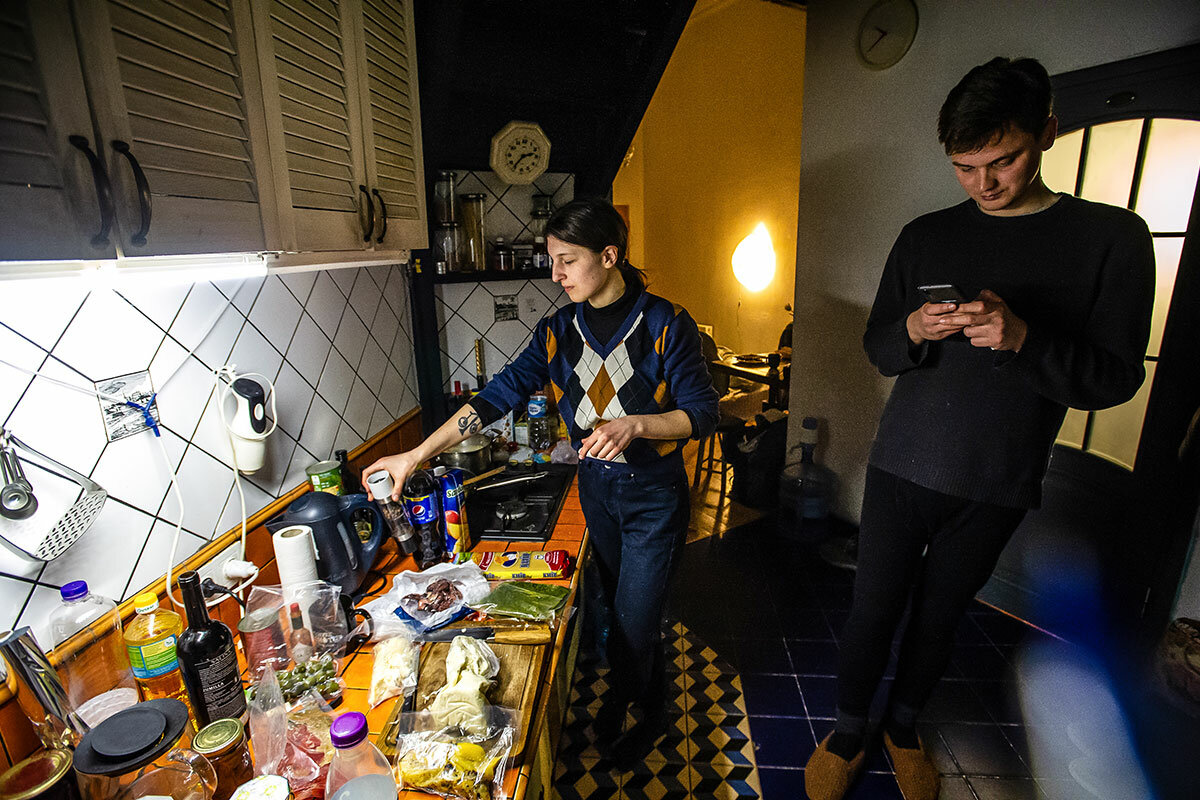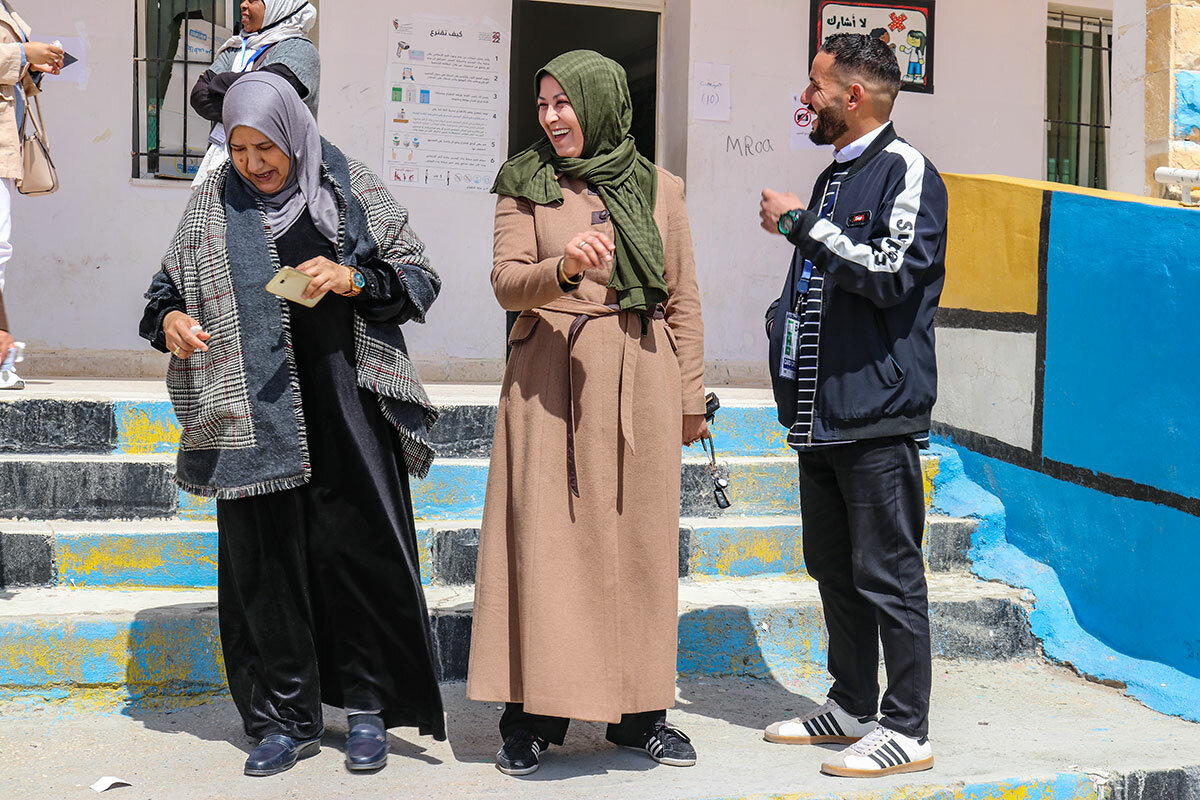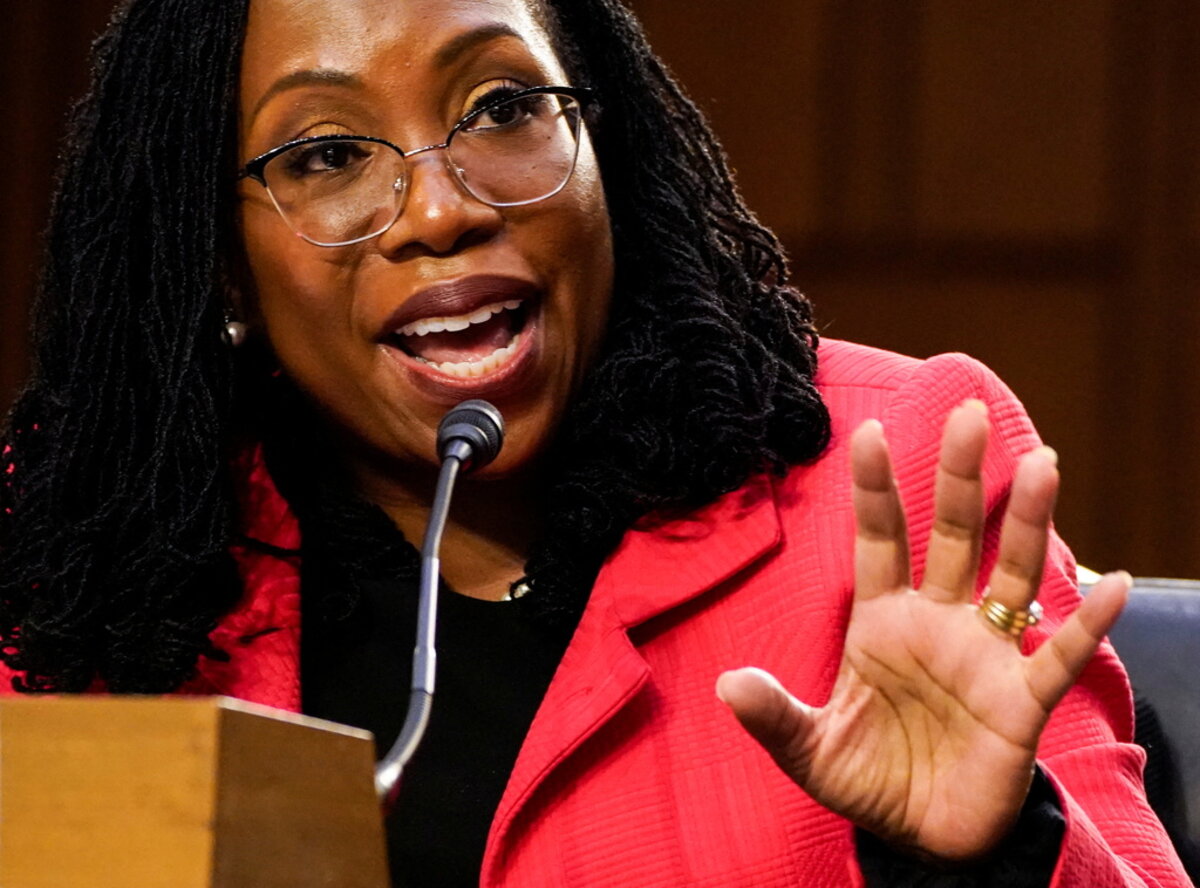Our reporter witnesses a generational shift in careers, perceptions of their country, and their life purpose as young Ukrainian professionals prepare for the Russian onslaught.
Monitor Daily Podcast
- Follow us:
 David Clark Scott
David Clark Scott
The plaintive cries of the violin are often associated with mourning.��
But during the Ukraine war, the fiddle is producing sounds of strength. It’s become a tool of defiance and an instrument of generosity.��
Take classical violinist Vera Lytovchenko. She’s been from the basement of her apartment building in Kharkiv, Ukraine. The Los Angeles Times called her an “.”
Ms. Lytovchenko started playing to ease the fear of her neighbors amid the explosions. Then she uploaded videos to let her friends know she’s still alive, she tells me via Instagram. Now, she says her bunker recitals are a message of hope to the world. “We have [the] strength and power to resist and ... we still have hope that the war will finish soon,” she says.��
In another basement in Kyiv, violinist Illia Bondarenko’s grandmother filmed him playing an old Ukrainian folk song. He did it at the request of a world-class British violinist. She put out a call via social media for other top violinists to accompany Mr. Bondarenko. Within 48 hours, she received videos from 94 violinists (including nine from Ukraine), representing 29 countries.��
Ms. Peacock, reached in Los Angeles after a rehearsal Tuesday for the upcoming Oscars, calls an unprecedented “fellowship of rosin and broken E strings.”
The violinists’ video delivers a stirring counterpoint to the chaos and violence of war. And it’s a kind of prayer, she says. It sends “the message of harmony across nations and across all boundaries. Musicians don’t see boundaries. We speak a universal language. And we exist in a different form of consciousness,” Ms. Peacock says. “Whatever your spiritual beliefs, there is power behind music. And it speaks to a higher power.”
The video also links to a .��
What’s next? Ms. Peacock plans to hold a live weekly “prayer session” for Ukraine by violinists around the world. “We’ll play the same piece at the same time together,” she says. “There’s a power to someone playing and praying at the same time.”











